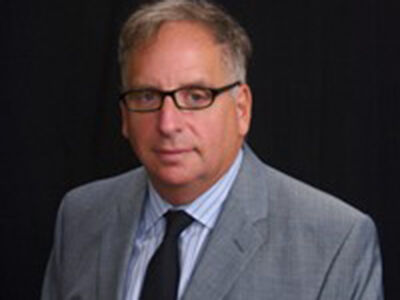World, business leaders hope to keep momentum in fight against climate change despite US
News > Top Stories

Audio By Carbonatix
4:07 PM on Monday, September 22
By SETH BORENSTEIN
NEW YORK (AP) — The U.S. government is going in the other direction. Temperatures keep rising. More extreme weather is sweeping across the world. Yet hundreds of leaders from government and business are in New York this week to keep the fight against climate change alive. Amid fracture and despair, they are emphasizing progress and hope.
More than 110 world leaders will speak at a special U.N. climate summit Wednesday designed to get nations to strengthen their required — but already late — plans to wean themselves from the coal, oil and natural gas that causes climate change. Dozens of business leaders are in the city networking in various conferences aimed at greener and cleaner energy.
“We’re here to power on. In the end, we either will have a livable planet or we won’t,” said Helen Clarkson, CEO of The Climate Group, kicking off New York City Climate Week and its more than 1,000 events. “It’s an uphill struggle, but we know we don’t have a choice. It’s up to us to protect what we love.”
But on Monday, as leaders talked about stronger national plans and reduction in fossil fuel emissions, Climate Action Tracker, an independent group of scientists who track pledges to fight climate announced that the host nation — the United States — had the biggest backslide in history.
“This is the most aggressive, comprehensive and consequential climate policy rollback the CAT has ever analyzed,” said Niklas Höhne, a New Climate Institute scientist who helps run the tracker.
But non-U.S. leaders in politics and business highlighted how much of the world has switched to cleaner renewable energy, such as solar and wind, mostly because of price.
“The economic case is clear,” European Commission President Ursula von der Leyen told the Global Renewables Summit. She said 90% of new renewable projects generate power more cheaply than fossil fuels, and solar energy is now 41% cheaper than the lowest-cost fossil alternative. "So yes, the momentum is real.”
Last year the world invested $2 trillion in renewable energy, twice as much as the fossil fuels that spew heat-trapping gases, several leaders said.
Just 10 years ago when the world's leaders adopted the Paris climate agreement, the planet was headed to 5 degrees Celsius (9 degrees Fahrenheit) of warming above pre-industrial times. Now it's on track for 3 degrees Celsius (5.4 degrees Fahrenheit), said United Nations climate chief Simon Stiell. But it's not near the Paris goal of 1.5 degrees Celsius (2.7 degrees Fahrenheit), Stiell said.
"We will have inched forward so progress is being made," Stiell said. He said the unanimous consensus process of international negotiations is “difficult, but it is delivering.”
But it's not enough and too slow, said Ralph Regenvanu, Vanuatu's climate change minister. His country and other small island nations and vulnerable states plan to ask the U.N. General Assembly — which goes by majority rule, not unanimity — to follow up on the International Court of Justice's ruling earlier this year that all countries must act on climate change. Vanuatu's resolution won't be proposed until after November's climate negotiations in Brazil, he said.
Places such as Antigua and Barbuda are “under siege for a climate crisis we did not create,” Prime Minister Gaston Browne said of his nation, which has been hit by four Category Four and Five hurricanes in a decade. “Every degree of warming is an invoice, literally a demand sent to small islands that we cannot afford to pay."
The nations of the world all were supposed to come up with new five-year plans for curbing carbon emissions by February, leading into the Brazil negotiations. But only 47 of the 195 nations — those responsible for less than a quarter of global emissions — have done so. U.N. officials said they should be submitted by the end of this month so experts can calculate how the world is doing in its emission-reduction efforts.
The world's biggest emitter, China, and another top polluter, the European Union, are expected to announce their plans or rough sketches of their plans this week. The United Nations session Wednesday is designed to cajole countries to do more.
Australian billionaire Andrew Forrest tried to cheer business and world leaders on Monday. “Despair is not leadership,” Forrest said. “Fear has never built anything. We’re here today to lead by your very example.”
___
The Associated Press’ climate and environmental coverage receives financial support from multiple private foundations. AP is solely responsible for all content. Find AP’s standards for working with philanthropies, a list of supporters and funded coverage areas at AP.org.










